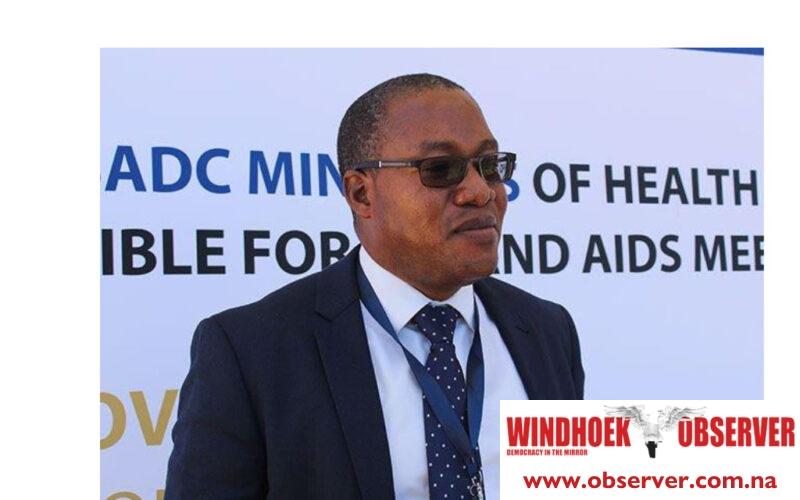Niël Terblanché
The Ministry of Health and Social Services (MoHSS) joined the world in observing Universal Health Coverage (UHC) Day on Thursday while making continuous strides towards ensuring accessible, equitable, and quality healthcare for all Namibians.
Ben Nangombe, the health ministry’s executive director said in a statement that the day was celebrated under the theme “Healthy People Drive Economic Growth: Quality Health Services Without Financial Hardship for All”.
He stated that this year’s event focused on the complex link between health and socio-economic development.
“There is no wealth without health, and more wealth should also translate to more health,” he said while reiterating the government’s role in fostering multi-sectoral collaboration to achieve UHC.
According to Nangombe, Namibia has made good progress in healthcare access, supported by its tax-funded public health system.
“As revealed by the National Statistics Agency, over 92% of Namibians live within a ten-kilometer radius of a health facility. This accessibility is strengthened by a health worker-to-population ratio of more than three health workers per 1 000 people—exceeding the World Health Organization’s (WHO) benchmark of 2.5,” he said.
He added that the ministry’s Medical Internship Program has also contributed significantly by producing qualified practitioners deployed nationwide.
According to Nangombe, affordability remains a cornerstone of Namibia’s healthcare system.
“Public facilities maintain minimal or no user fees, ensuring no one is denied care due to financial constraints. Programs such as the Special Fund for Uncommon Illnesses and the Motor Vehicle Accident Fund further protect patients from prohibitive costs. Out-of-pocket healthcare expenditure in Namibia stands at just 8%, far below the WHO’s concern threshold of 15 to 20%,” he said.
He added that the government’s commitment to healthcare financing is reflected in its consistent allocation of over 16% of the national budget to health—exceeding the Abuja Declaration target of 15%. Private-sector collaborations also complement government efforts, particularly in urban and specialized care.
According to Nangombe, Namibia’s achievements extend to key health indicators, with improvements in maternal, infant, and child mortality rates, and significant progress in combating HIV/AIDS.
He also said that in 2024, Namibia was certified for advancing the elimination of mother-to-child transmission of HIV, a milestone underscoring its commitment to global health goals under the Sustainable Development Goals (SDGs).
Despite these successes, challenges persist.
Geographic and socioeconomic disparities remain, particularly in rural and marginalized communities.
Rising non-communicable diseases, mental health challenges, and climate change impacts further strain the health system.
“After recognising these issues, the government has proposed a N$16 billion Health Systems Strengthening plan, which includes projects like the Windhoek District Hospital and dialysis services in public hospitals,” he said.
Nangombe added that the impending Universal Health Coverage Policy, set to be presented to the Cabinet early next year, aims to chart a strategic vision for equitable and affordable healthcare access.
He called upon Namibians to reflect on the significance of health as a shared responsibility.
“Together, we can overcome challenges and build a resilient, inclusive health system that leaves no one behind,” he said.




